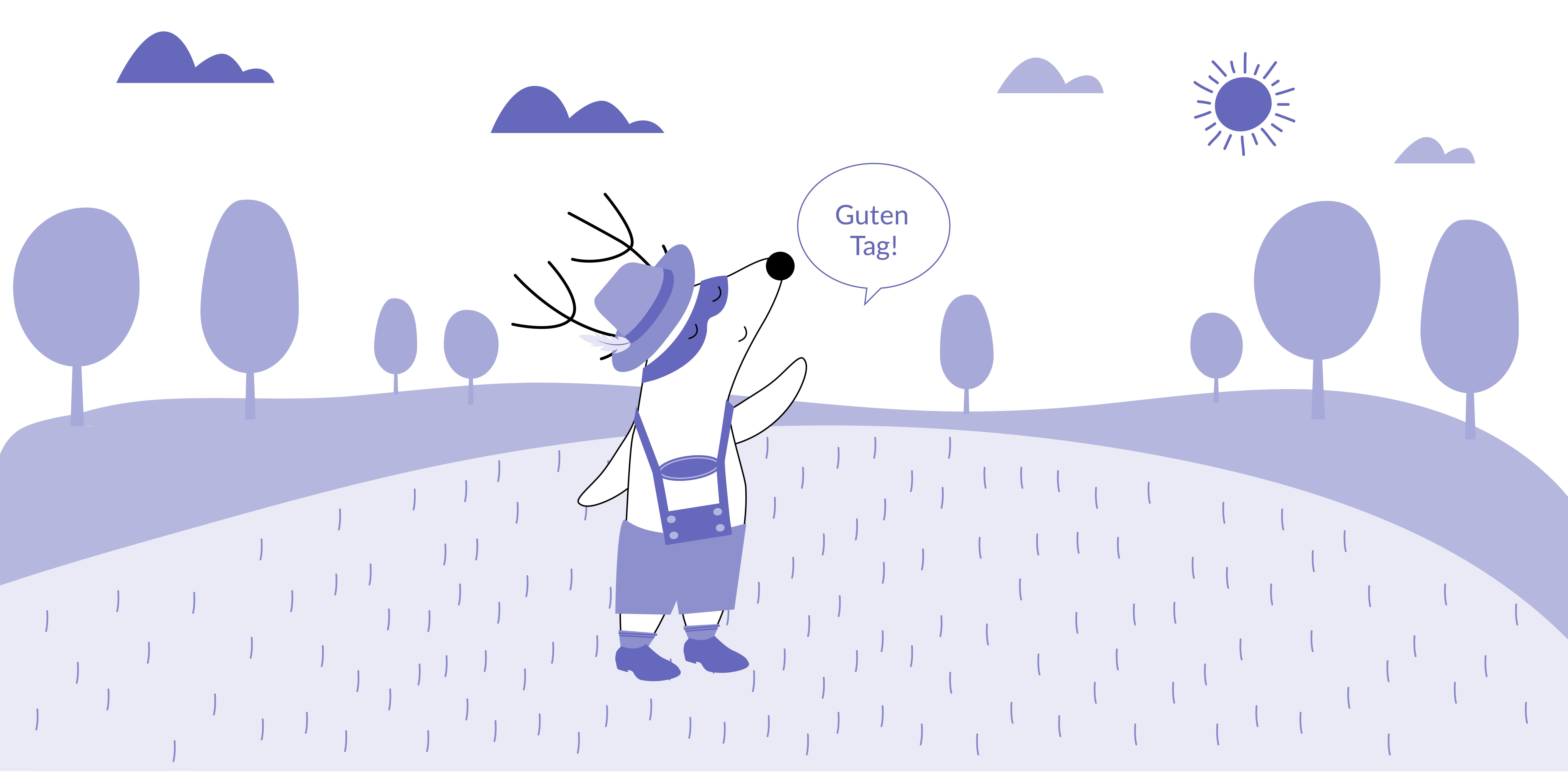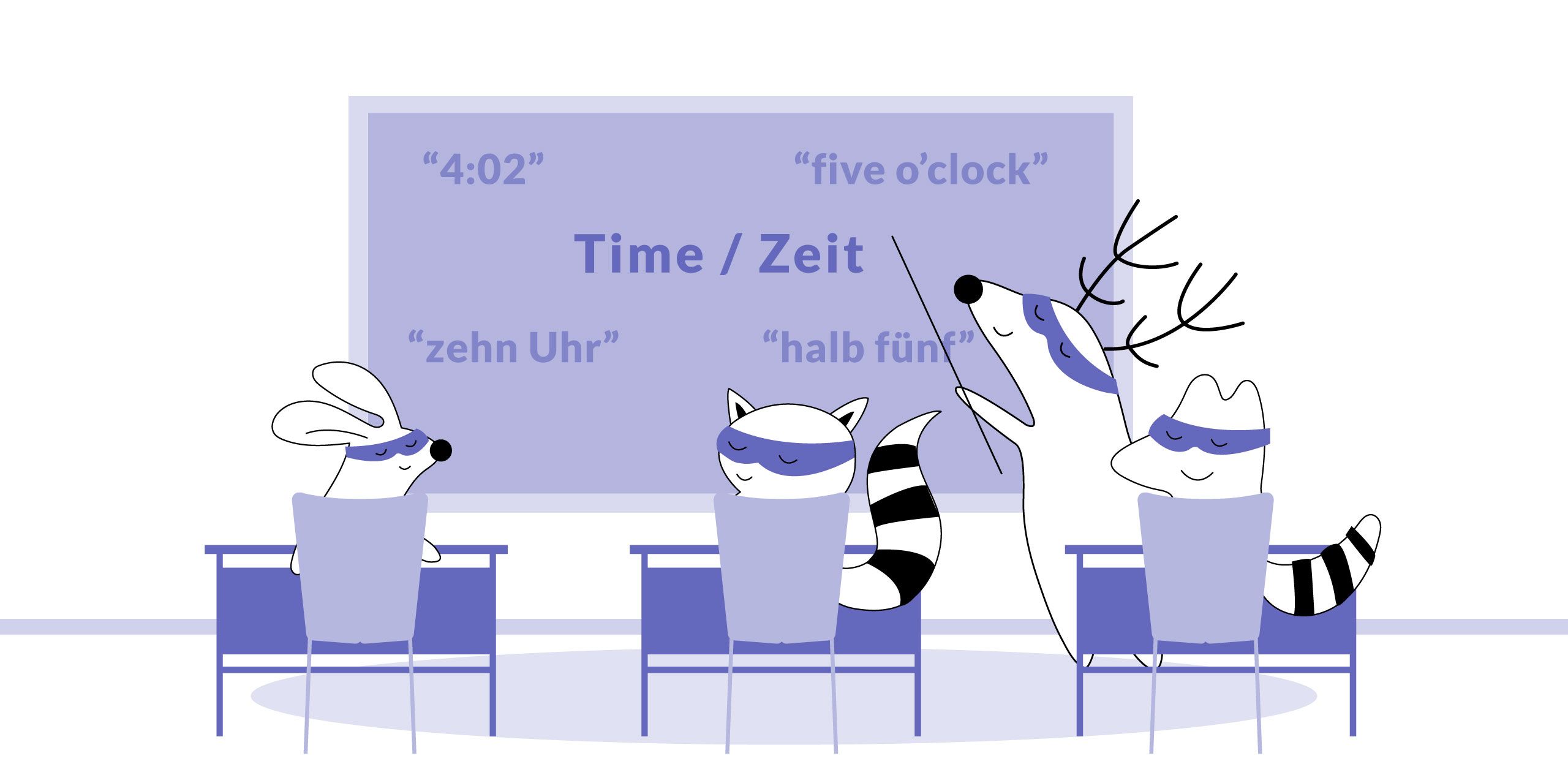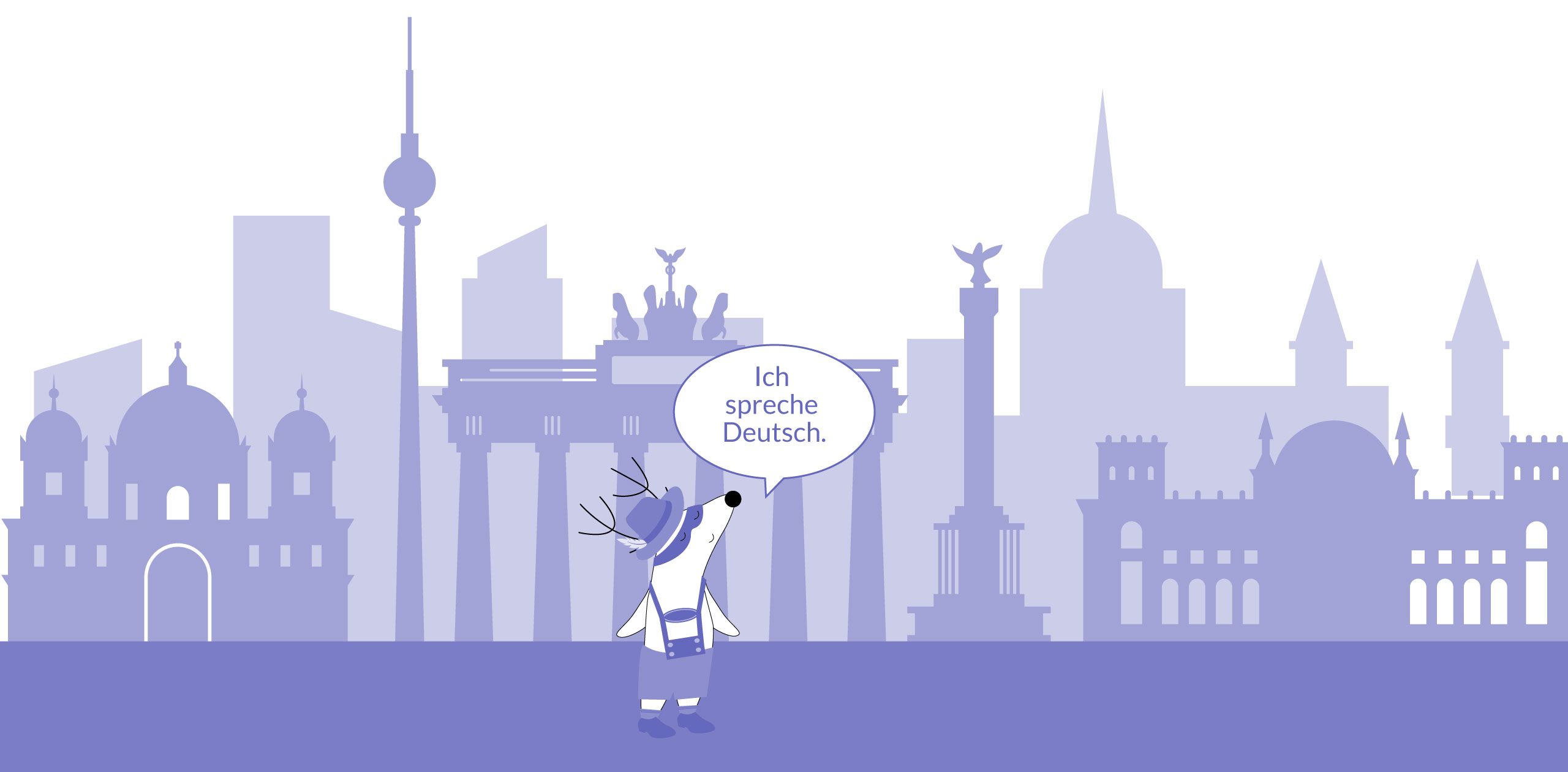
Do you want to learn how to say "I speak German" in German? If so, then you’ve come to the right place. Speaking a foreign language can be intimidating and overwhelming, especially if it is your first time learning a new language. But, don’t worry – with this article, we will help make speaking German easier than ever before.
In this article, we will cover all the basics of saying "I speak German" in German. First, we will help you understand the proper pronunciation and grammar of this phrase. Then, we will walk through some common contexts and situations where you can use this phrase, so that you can feel more confident when speaking German in a variety of settings.
Finally, we show you all the different ways to ask questions about speaking German, so that you are prepared for any situation. Are you ready? Let's dive in!
Learn German with Langster
Say “Ich Spreche Deutsch” Correctly: the Basics
Let's start simple: Ich spreche Deutsch means "I speak German."
When saying “Ich spreche Deutsch” correctly, it is important to remember the proper pronunciation. The way to pronounce this phrase is as follows: eekh shpreh-kuh doytsh. Listen to it closely and repeat:
German
English
Ich spreche Deutsch.
I speak German.
The grammar here is very easy to master.
This particular phrase consists of three words. The first word, ich, is a personal pronoun meaning "I." It's used in the nominative case, which means it's not declined.
The second word, sprechen, is a verb that means “to speak.” It is conjugated in the first-person present tense.
The third word, Deutsch, is a proper noun that is just the German name of the German language.
Looks very simple, right? Let's add a bit of complexity to this lesson, then.
"I Speak German" in Context
Once you know how to pronounce the phrase correctly, it is time to focus on using it properly in context. When talking about your knowledge of German with others, it is best to use this sentence as an introduction or a confirmation statement, depending on the conversation topic at hand.
For example, if someone were to ask you if you spoke German, then a polite response would be:
German
English
Ja, ich spreche Deutsch.
Yes, I speak German.
You can also use it if someone asks what languages you know. In that case, you could answer:
German
English
Ich kenne Englisch und Deutsch.
I know English and German.
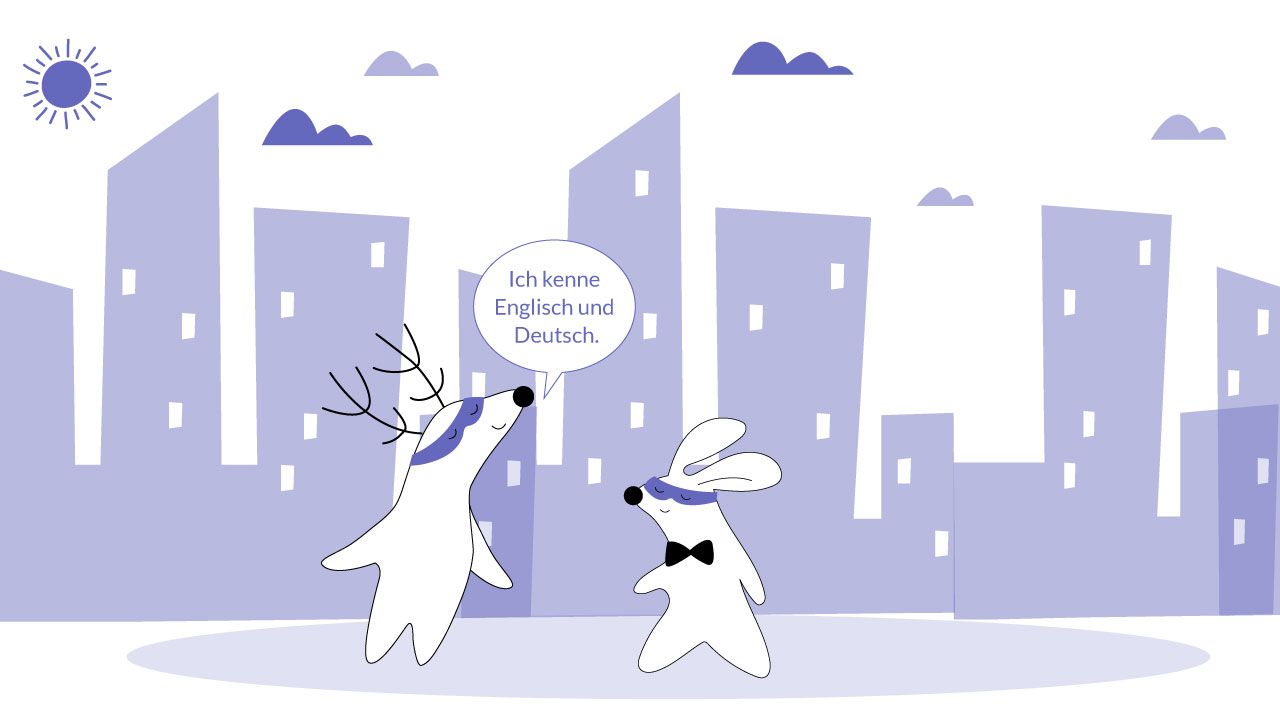
Here, we swap the verb sprechen, "to speak," to kennen, "to know." As you can see, both these verbs have the same endings in the present tense.
In addition to these two examples, there are many other common conversations where this phrase can be used, such as when someone is asking you for directions or making small talk in German. Generally, you will use this phrase very often when talking to someone in the German language.
“I Don’t Speak German” in German
But, what do you do if you don't speak German and need to communicate that? There are a few common phrases to use, depending on the situation.
If you’re talking to a stranger or someone who has just asked you if you speak German, then a simple and polite response is:
German
English
Nein, ich spreche kein Deutsch.
No, I don't speak German.
As you can see, this phrase is very similar to the one we've already learned. The only difference is that you change the word "yes" to "no," and add the pronoun kein, which means "no." The literal translation of this phrase would be "No, I speak no German."
If you need advice or help from someone who speaks German but don’t know how to ask them in their mother tongue, it may be appropriate to say something like:
German
English
Können Sie mir bitte helfen? Ich spreche nicht gut Deutsch.
Can you please help me? I don't speak German well.
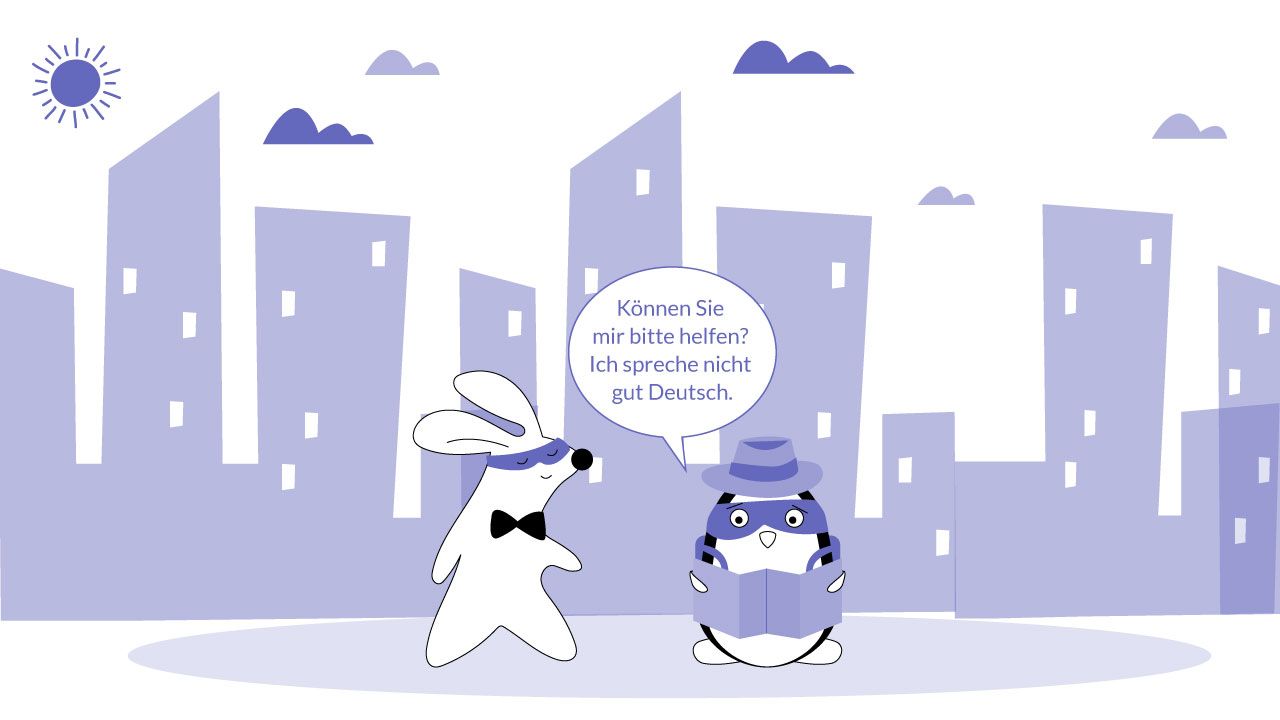
Let's dissect the second sentence here: you add a negation, so the word "not," or nicht. And then an adjective gut, "good" before the proper noun Deutsch. So, literally, you would say something like: “I speak not good German.” Pretty simple, right?
Other Ways to Say That You Don’t German
Of course, depending on the context, you might need to use some other helpful phrases to say that you know or don't know German. Learning these will help you become more comfortable speaking the language when you're just starting out.
Here are some common sentences:
German
English
Ich spreche ein bisschen Deutsch.
I speak just a little bit of German.
Ich kann kein Deutsch.
I don't know German.
Ich bin unfähig Deutsch zu sprechen.
I'm unable to speak German.
Meine Fähigkeiten reichen dazu nicht aus, die Deutsche Sprache zu sprechen.
My skills are not sufficient to speak the German language.
Ich beherrsche die Deutsche Sprache leider nicht.
Unfortunately, I don't know the German language.
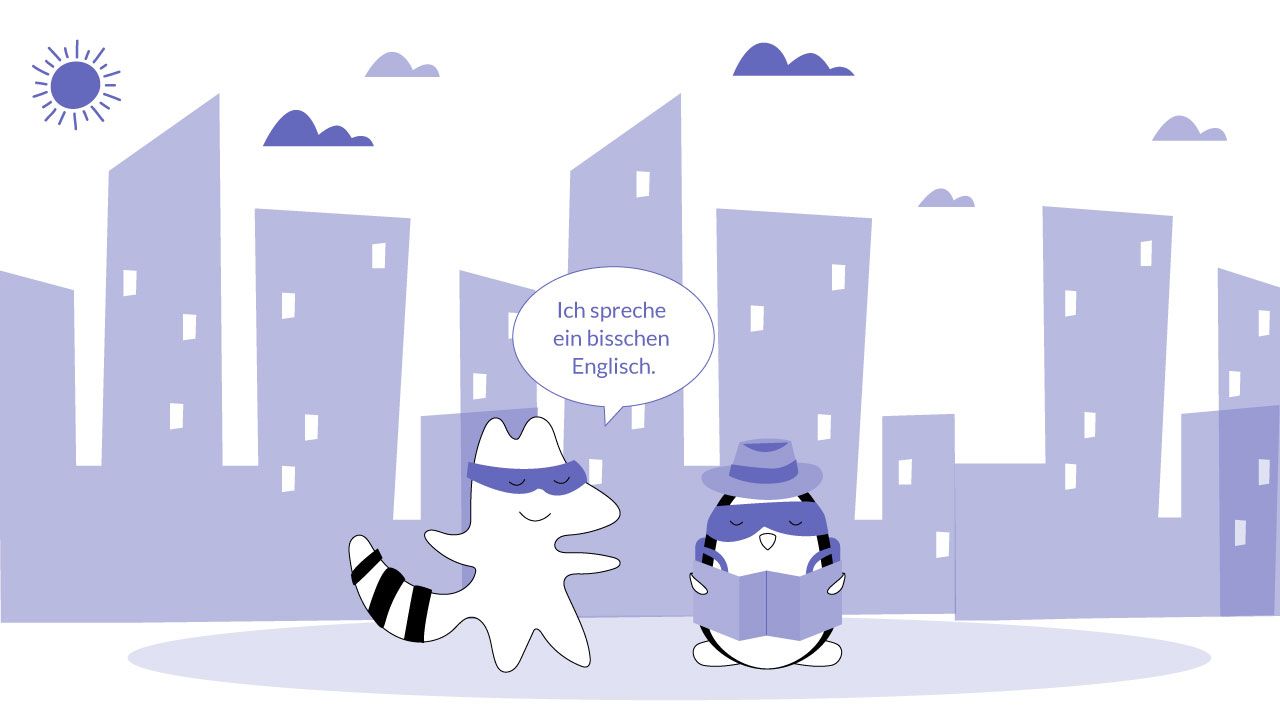
Ask Someone About Speaking German
Finally, you also need to know how to ask someone whether they speak German (or any other language).
When doing so, there are two things to remember. First, using the correct sentence structure for asking questions in German. And, second, using the right level of formality.
The basic question you can use is:
German
English
Sprechen Sie Deutsch?
Do you speak German?
As you can see, we’re simply swapping the verb and the pronoun. Here, you also use the formal pronoun Sie (royal “You”). You can use this question when talking to people you don’t know well or people who are older or in a higher position than you.
On the other hand, when talking to people in informal settings, you can use a bit more casual phrase:
German
English
Sprichst du Deutsch?
Do you speak German?
Here, we’re using an informal pronoun du instead of Sie. As you can see, regardless of the translation, you need to conjugate the verb in different ways when using these two pronouns.
And then, of course, if you want to ask someone about any other language, just change the name:
German
English
Sprechen Sie Englisch?
Do you speak English?
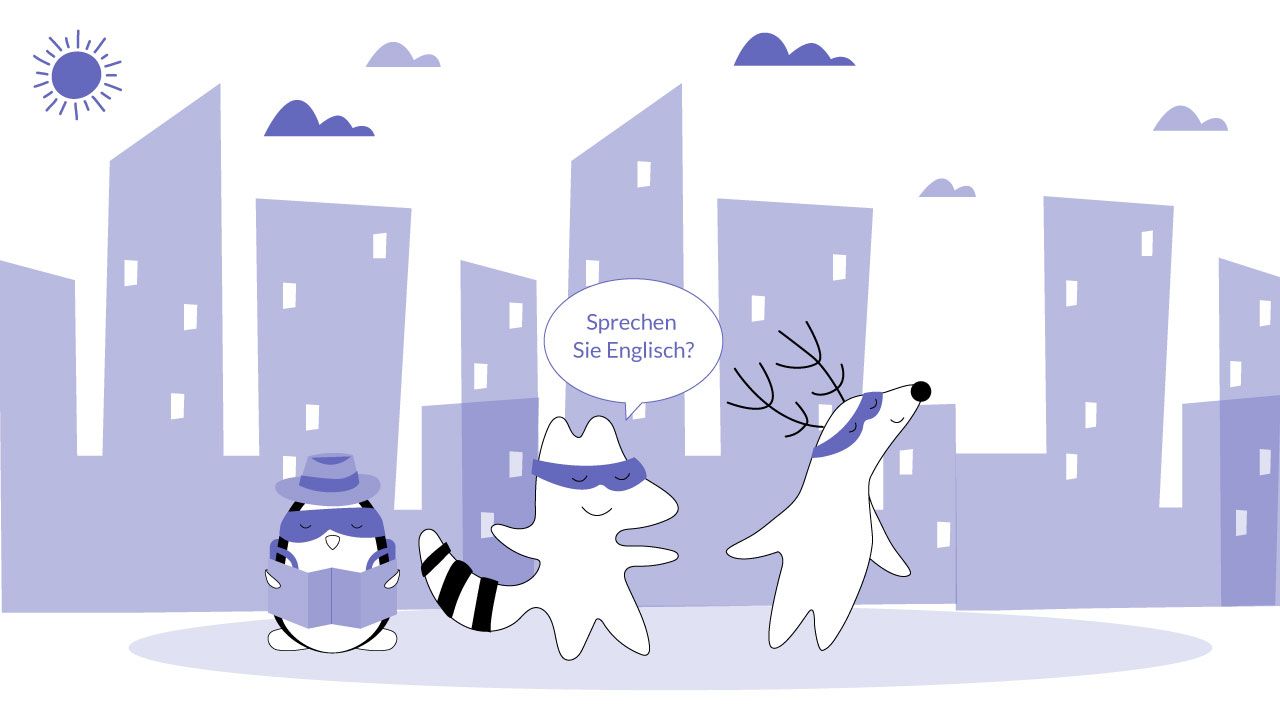
Bottom Line
When you are just starting to learn German, memorizing how to ask and answer the question about speaking German is one of the first things you need to master. Fortunately, this is pretty easy to do. While German grammar and vocabulary can be pretty tricky to manage, these simple phrases will help you take the first, founding steps to becoming fluent.
Enjoy the simplicity to build up on it later, and don’t be afraid. The German language can be very interesting – so, start learning today, and become more confident when speaking it in no time.







